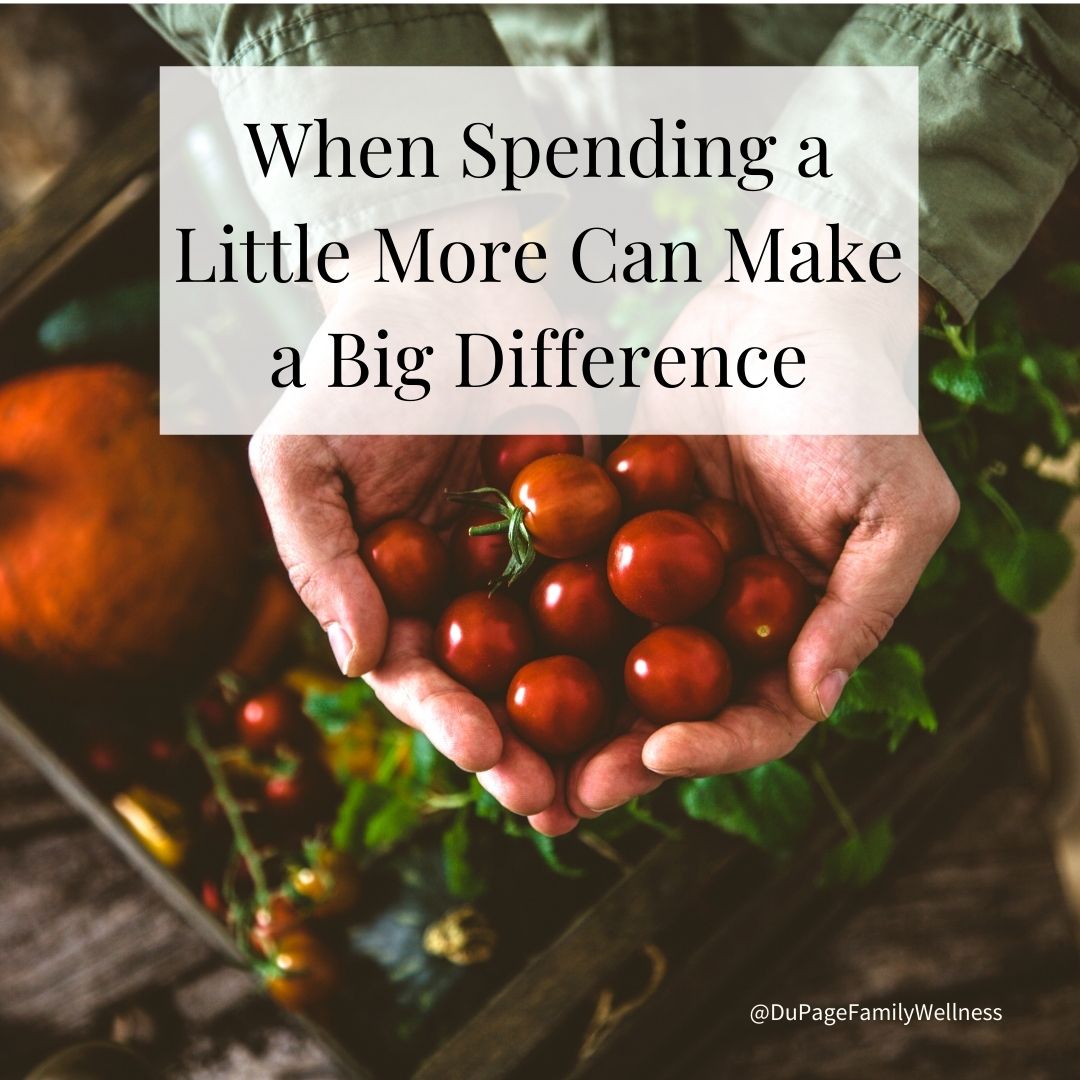 Have you ever asked yourself if the benefits of organic food is worth the cost? Are you trying to eat healthy and wonder if going organic may be your next step?
Have you ever asked yourself if the benefits of organic food is worth the cost? Are you trying to eat healthy and wonder if going organic may be your next step?
Many people believe that it is enough to stop eating processed foods, focusing instead on eating meat, vegetables, and fruit. But is that really enough? What happens in our bodies when we are exposed to the toxins in conventional food sources.
Let’s take a look into this issue so that you can decide if the cost is worth the benefit!
A New Perspective
A few years ago, I was at a nutrition seminar when I had a “lightbulb” moment. The doctor speaking was explaining that toxins are stored in fat cells. Since the body is designed to protect itself, it creates a buffer from these toxins in the form of more fat!
People usually think that you put on fat when you consume too many calories. In reality, fat accumulates when our hormones and blood sugar are out of balance. What we eat impacts our hormones, and our bodies intentionally contribute to hormonal changes in order to try to protect us.
But I Eat “Healthy Food”
Unfortunately, chemicals on food that is normally considered healthy can still disrupt our hormones and contribute to weight gain. Obesogen is a word to describe these substances. You can find many articles on this subject, including this one on "How Chemicals in Food Can Make You Fat."
Obesogens alter lipid homeostasis and fat storage while changing your metabolic setpoint. They also disrupt your energy balance, and can modify your appetite and satiety which can promote fat accumulation as well. People long ago didn’t have these exposures.
Our Ancestors
Until agricultural chemicals and pesticides came on the scene, what we call organic farming today was just normal farming. There were no special certifications, because all farmers were using organic methods.
You see during WWII, the US military used DDT to control the spread of diseases in Europe and in the Pacific. Right after the war, DDT was released to agricultural companies and became the gold standard for insecticides. In fact, agriculture received most of the leftover chemicals created for war time use. Other chemicals were also used in fertilizers.
Back then they didn’t know that these materials are highly toxic and carry dangerous risks. When farmers began using these new chemicals, consumers were not notified of the change or the resulting pesticide laden products.
The use of pesticides and fertilizers grew rapidly, and is the standard practice today. When word got out that the new way of farming included toxic materials, it gave rise to the “organic” movement.
What Does the Organic Label Really Mean?
You’ve probably seen the small green USDA Organic label on fruits, vegetables, and other products. To earn this label, the growing area must be free of synthetic pesticides for at least three growing seasons. If a product has multiple ingredients, 95% of ingredients must be grown organically in order to earn the Certified USDA Organic seal.
The certification process can be quite expensive for farmers. Many small local farmers use organic methods without getting the label because it is simply too complicated and expensive.
What’s Better than Organic?
Believe it or not, in season foods grown locally have more nutrients than organic foods purchased from the grocery store.
Remember, the produce in your grocery store is often grown out of season before being shipped across the country to your local grocery store. This results in a loss of nutrients, as nutrients begin to decline as soon as the food is harvested.
The longer food has been out of the ground before you eat it, the greater reduction in vitamins and nutrients. Talk to the farmer and ask them about their farming practices. You may find that they are organic in practice without the label.
Keep an eye out for next week's blog, where we will talk about practical application of this knowledge and what to do if you aren’t quite ready to completely go organic.
Dr. Jamie
